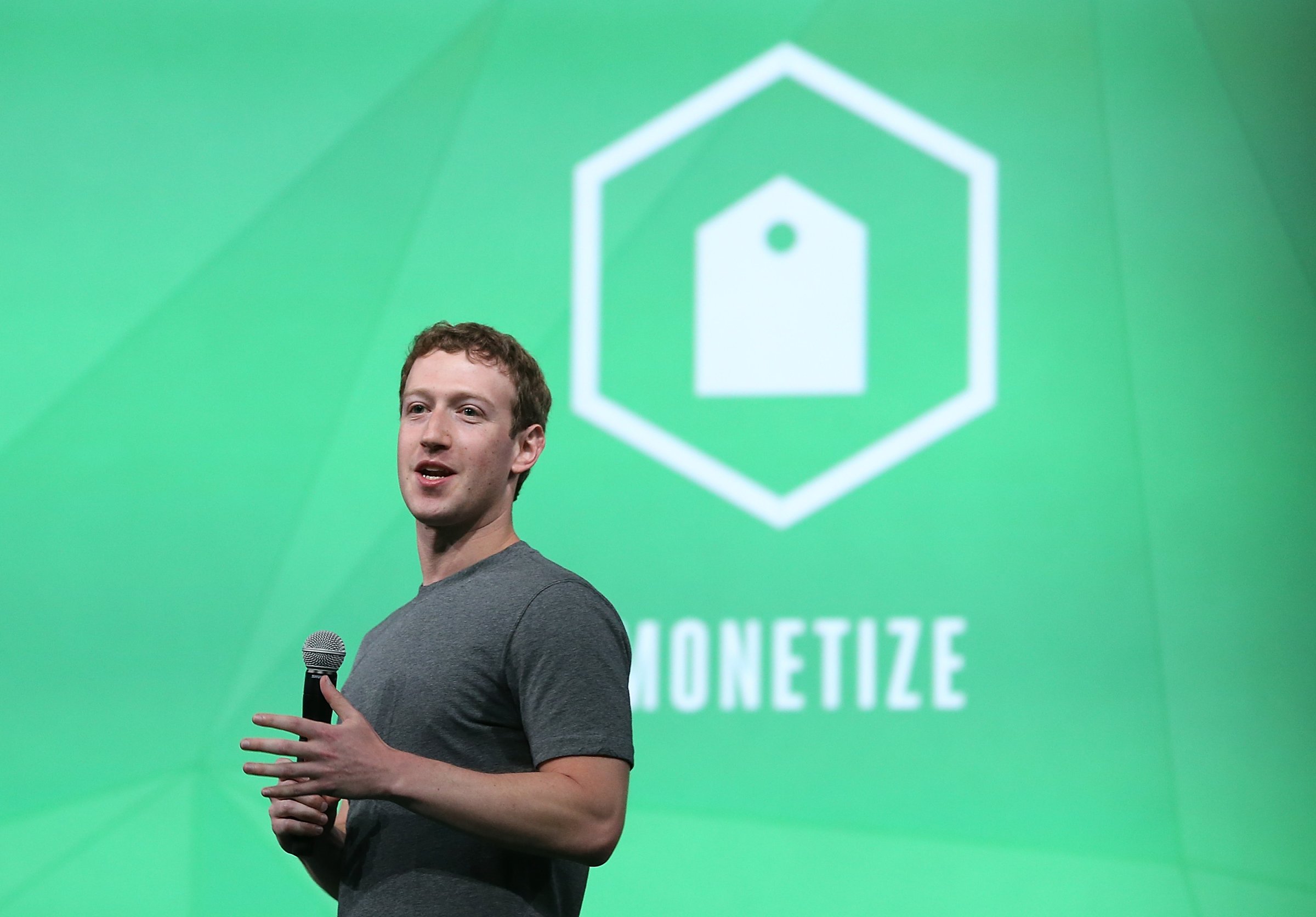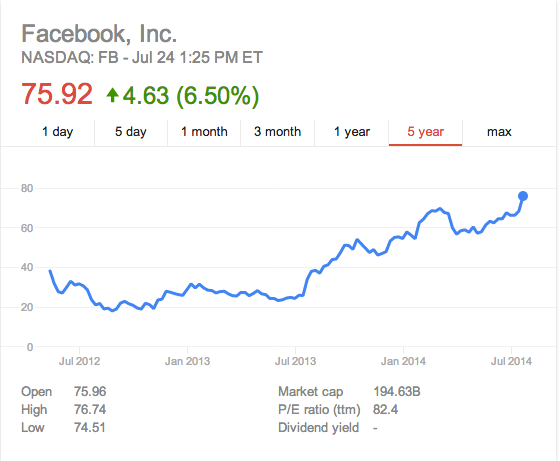
Facebook suffered a cruel summer back in 2012. The social network raised its IPO price just before going public in May 2012, but technical glitches during early trading caused mass investor confusion. Nasdaq eventually paid a $10 million fine over the debacle, and Wall Street showed no mercy to the social network in the ensuing months. Facebook’s stock cratered, diving from $38 to below $18 before the following autumn.
Two years later, the sun’s shining bright on the tech giant. Facebook beat analysts’ expectations yet again in its latest quarterly earnings report, generating revenue of $2.9 billion and earnings per share of 42 cents. That sent the company’s stock soaring above $76 during midday trading Thursday, doubling its IPO price of $38. That’s also more than quadruple the social network’s all-time low close of $17.73.

Facebook’s massive turnaround has everything to do with mobile. When the company went public, its revenue was almost completely tied to desktop ads–exactly the kind of business investors in the mobile era don’t like. With more than half a billion people already accessing Facebook on mobile, the company had to prove that it could successfully transition its business. CEO Mark Zuckerberg set a laser-like focus on mobile strategy, and he forced his executive clique to do the same.
The dedication has paid off. Facebook now generates more than two-thirds of its total ad revenue on mobile and has more than a billion mobile monthly active users. Overall ad prices jumped 123 percent year-over-year, partially because mobile ads placed directly in users’ News Feeds are more valuable than ads on the right rail of the site served to desktop users.
But what really has Wall Street salivating is the fact that Facebook has plenty of mobile monetization moves left to make. New auto-playing video ads in users’ News Feeds could help the company lure marketers from television. Instagram introduced ads last year that are being positioned as an attractive option for brand marketers. The company is also likely to figure out ways to make money off its messaging goliaths Messenger and recently-acquired WhatsApp.
Overall, it’s clear that Facebook has solved its mobile conundrum, and Wall Street is rewarding it handsomely. With its share of the overall mobile advertising market quickly increasing, the company may soon to be able to challenge Google to be at the top of the totem pole of mobile.
More Must-Reads From TIME
- Dua Lipa Manifested All of This
- Exclusive: Google Workers Revolt Over $1.2 Billion Contract With Israel
- Stop Looking for Your Forever Home
- The Sympathizer Counters 50 Years of Hollywood Vietnam War Narratives
- The Bliss of Seeing the Eclipse From Cleveland
- Hormonal Birth Control Doesn’t Deserve Its Bad Reputation
- The Best TV Shows to Watch on Peacock
- Want Weekly Recs on What to Watch, Read, and More? Sign Up for Worth Your Time
Contact us at letters@time.com